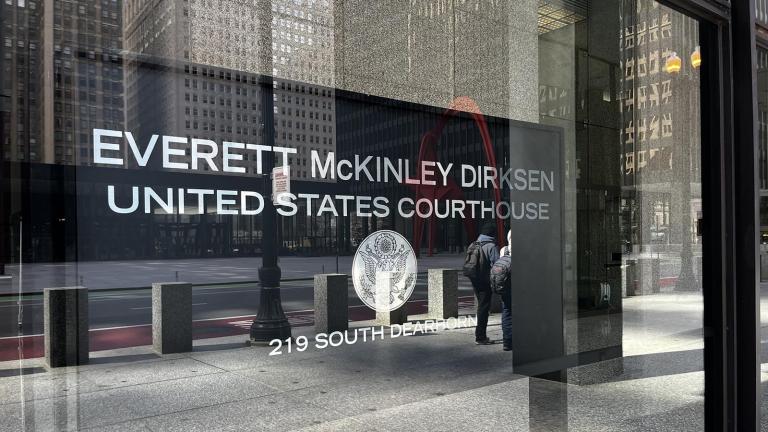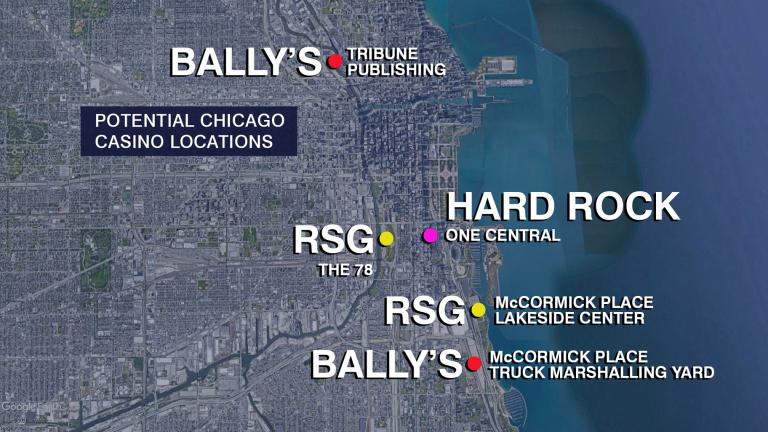Since opening up to sports betting in 2019, Illinois has rapidly emerged as one of the top gaming markets in the nation.
Last year alone Illinois residents wagered $7.1 billion according to the Illinois Gaming Board.
Now, just in time for March Madness, Illinois has dropped an in-person registration requirement for sports bettors — making it even easier to gamble using online apps.
But the expansion of gambling is not without cost.
Treatment service providers who work with those with gambling disorders say they have seen a spike in people seeking help with gambling addiction.
“When you offer something like gambling to a large segment of the population on a state-by-state basis, you’re going to see people start to experience gambling related harms,” said Daniel Trolaro, vice president and gambling prevention specialist at Epic Risk Management, a global consulting firm focused on minimizing the harm caused by gambling. “It’s the law of large numbers, the more you offer it, the more you’re going to have a percentage of people that struggle with it across the country.”
Trolaro, who is himself in recovery from gambling addiction, says that it’s estimated that about 2% of the population struggles with some type of gambling disorder.
But he says gambling problems “exist along a continuum and that’s where the number gets much larger.”
He says that in his home state of New Jersey, a Rutgers University study found that almost 6% of people had gambling related disorders.
One of the reasons for the massive expansion in gambling, and gambling related problems, is that online apps now make placing a bet so easy.
“(When) a person has the ability to wager 24 hours a day, seven days a week from the comfort of their own home that also increases the likelihood of developing problematic tendencies or habits,” says Trolaro.
And while people looking to control a casino gambling problem can sign up to participate in a voluntary exclusion program that keeps them out of casinos, there is no equivalent program for people gambling online.
“What we’ve seen is an increase in people having easier access to gambling right from their phones without having to leave their homes,” said Teresa Garate, senior vice president at the Gateway Foundation, a nonprofit that treats many kinds of addiction, including gambling addiction. “So people who are maybe in long term recovery and not going to casinos or different venues for gambling can now do it from their homes. So the triggers are much more present and prevalent for those individuals.”
Garate says that the suicide rate for problem gamblers is five times higher for people with a gambling disorder. She says that in many ways, gambling addiction is no different to substance abuse, except often more easily concealed.
“Gambling addiction is very much like any other addiction,” says Garate. “Addiction is a disease of the brain. It is not a moral failing. And when people are gambling ... you get the same kind of high, you get the same kind of euphoria, you can’t quit, you can’t stop, you just keep going.”
For the online gambler, it’s not just winning that matters, it’s the anticipation of the next bet, says Trolaro.
“There’s a lot going on with the brain and (gambling) over stimulates certain regions which can make it harder for someone to enter recovery and sustain recovery.”
For both Trolaro and Garate, the key to mitigating the harms that widespread, easily accessible gambling can bring, is prevention through education, and treatment for those who need it.
“Prevention is always the key,” says Trolaro. “Before treatment, you talk about prevention, adopting legislation and language that puts gambling education into the school system for K through 12 would be huge.”
Trolaro says any state that’s adopting gambling to generate revenue should also be implementing gambling related curriculum to be used in the school system to educate young people of the dangers “just like they do for substance use for drugs and alcohol and other substances.”
Garate says reducing the stigma and shame of addiction is crucial and that the biggest challenge is educating the public.
“If somebody is coming home to their loved one every night drunk that loved one is going to know that there’s a problem. It’s going to be very clear and so not that it’s easier, but it will be a little bit more obvious to the family member that they need to talk to their loved one about this,” says Garate. “When it comes to gambling, they could be gambling without anyone knowing for a very long time, so the education piece and the outreach is really critical.”
Illinois Gaming Board’s website offering resources and help for problem gamblers.
Note: this story will be updated with video.






